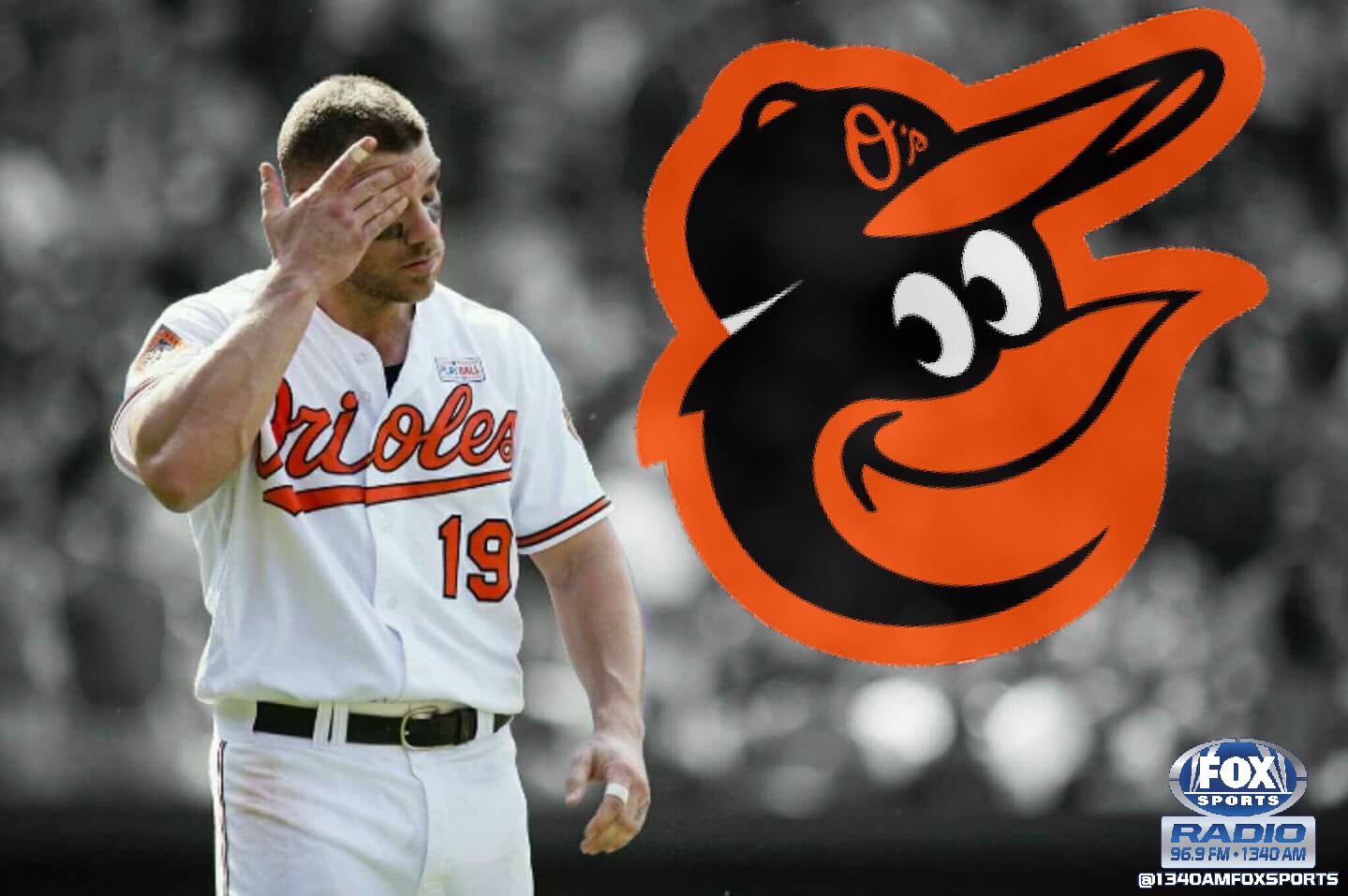The Baltimore Orioles have a dilemma at their hands when it comes to signing new players. It’s the contract of their first baseman, Chris Davis.
During the 2015-16 offseason, Davis signed a 7-year, $161 million deal with the Orioles. There quite a few questions about the contract, mainly coming from the “did he deserve it” camp.
From 2011-2015, Davis slashed .257/.339/.522, which isn’t eye-popping. However, he also hit 164 home runs and drove in 431 runs over that span, averaging 33 homers and 86 RBI. Davis especially found his power stroke in 2013 and 2015. In 2013, Davis topped the American League in home runs (53) and RBI (138) and finished third in the MVP race. In 2015, Davis lead the AL in homers (47) and batted in 117 runs.
It’s fair that Davis earned that contract, so that can be put to rest. The issue is that it was unknown whether he could replicate that production, going into his age 30 season and beyond.
So far, he hasn’t replicated the production and has dropped off significantly. Davis still hit a considerable amount of homers in 2016, hitting 38 and driving in 84 runs, but his slash line was .221/.332/.459. He also led the MLB in strikeouts with 219. His numbers declined further in 2017, batting .215/.309/.423, hitting 26 home runs and driving in 61 runs.
Lack of Flexibility in the Lineup
Davis’ contract has also hurt the flexibility of the organization as a whole.
When Baltimore called-up then first baseman Trey Mancini, Davis was blocking the 24-year old prospect from playing his natural position. Mancini also wasn’t able to man the designated hitter role because of Mark Trumbo’s presence at DH, first base and right field. Due to these two reasons, Mancini was moved to left field, a position that is foreign to him.
Baltimore couldn’t put one of their best hitters at his natural position. Mancini batted .327 (150 at-bats) as a first baseman and .299 (67 at-bats) as a designated hitter in 2017, which are both impressive numbers. As a left fielder in 2017, Mancini batted .275 (313 at-bats).
As mentioned before, it isn’t just Davis’ return that hurt Baltimore’s lineup flexibility. It was the return of Trumbo as well. Together, they combined for a -0.7 WAR last season.
Financially Strapped
Due to Davis’ re-signing with the team, it is believed that Baltimore would be less willing to put up big bucks when it comes to re-signing or acquiring players who will command a great deal of cash. Though some may be willing to point to Orioles third baseman Manny Machado, he would most likely be outside of Baltimore’s price range. There are some that believe that Machado will get upwards of $325 million in his next deal.
Back to Davis.
Davis’ contract creates some financial stagnancy for the Orioles in their pitching situation. Baltimore can’t afford to sign a higher priced pitcher because their money is already tied up in Davis and Trumbo’s contracts (Trumbo is going into his second year of a three-year/$37.5 million deal).
Where in other offseasons Baltimore wouldn’t even hesitate on offering pitchers like Tyler Chatwood multiple years, they haven’t been able to do the same thing during this offseason. They also have to figure out whether or not they will trade or re-sign relievers Zach Britton and Brad Brach, and will they be able to re-sign second baseman Jonathan Schoop with both contracts on the books?
Two Ways to Fix This Situation

There are a few different ways that Baltimore could remedy the situation. One is that they could possibly figure out a way to move one of the two players in a trade. The issue is that, Baltimore may have to part ways with a few prospects for a team to take on Davis or Trumbo’s contracts. However, it would allow them to make signings in the future, bringing immediate financial relief to a cash-strapped club.
Another way is that Davis and Trumbo could just play better. Both players have shown that they have immense power and talent with the bat. If they could figure a way to get on-base and put up a decent batting average, they are that much more deadly. It may not be the ideal situation to stick them at different positions defensively, but offensively, it could help their numbers.
If Baltimore does move Machado, Davis could be a candidate to play third base. As a third baseman, Davis has batted .271 (329 at-bats) with 12 home runs and 42 RBI. He could also rotate to DH, where he bats .281 (366 at-bats) with 24 home runs and 70 RBI. Additionally, Davis could be moved down to sixth in the lineup, where he bats .269.
Mancini could then be moved back to first base, with Trumbo playing in right field and Austin Hays or Anthony Santander playing left field. Trumbo bats .279 (946 at-bats) as a right fielder in his career, totaling 57 home runs and 144 RBI. Trumbo hits considerably better when in right field, than he does as the DH (.227, 47 home runs, 129 RBI).
Baltimore could get flexible, but it would cause for a huge change in manager Buck Showalter’s philosophy on defense and a trade of Machado. Numbers-wise, it can work and it rides on the back of a potential Machado trade.
(Photo/Illustration Credit: Hugh Scott/WHAP FOX Sports 1340 AM)


